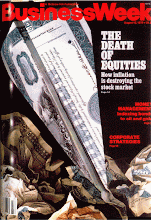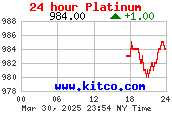SCMP Monitor By Tom Holland
Donald Tsang Yam-kuen promised to get a grip on Hong Kong's ballooning home prices.
We do not want to see a huge property bubble developing, he told a hall full of business executives. We do have tools available to stabilise the market if needed.
Of course, the government has the tools to stabilise prices; it is the monopoly supplier of land in Hong Kong and controls the market.
But whether Tsang chooses to do anything bolder than merely tweak the city's land supply mechanism is doubtful. After all, the government has deliberately rigged the whole system precisely in order to keep home prices high.
The reason Tsang is making noises about reining in the market is the near 30 per cent rise in flat prices so far this year, which has driven prices up to within a whisker of their March 2008 highs.
The run-up in prices has prompted a swelling chorus of protests that the supply of new flats coming to the market is insufficient and that the reason is the government's restrictive land supply system.
As things stand, there are three main ways a property developer can acquire plots to build on. It can trigger a land auction through the government's application list mechanism. It can pay a hefty premium to the government to allow it to build homes on land previously designated for agricultural or industrial use. Or it can go into business with the government-controlled MTR Corp to help develop portions of MTR's giant land bank.
Under the application list system, a developer triggers an auction if it proposes paying 80 per cent of a secret reserve price for a plot on the government's list. If no one then makes a higher bid, the developer that initiated the auction has to pay the full reserve price. The application list method was introduced in 1999 to replace regular auctions. A large part of the idea was to help support depressed prices. But the system has succeeded beyond anyone's wildest dreams. Land auctions have all but ground to a halt as developers have failed to file rich enough proposals.
The developers blame the government for setting reserve prices too high. Cynics rubbish that notion, saying the developers have colluded not to trigger auctions, in order to keep prices high.
That would suit the large developers, who are sitting on sizeable areas of farming and industrial land. With the conversion charge determined by the difference in value between residential land and plots earmarked for other uses, a shortage of residential land ensures that only the richest developers can afford to pay the premium.
It would also suit the MTR and its favoured partners, who in recent years have exerted a virtual stranglehold on new properties in the mass market.
In each case, the effect of the land supply mechanism is to erect formidable barriers to entry, restricting the market to a select cartel of developers and protecting their margins by supporting prices.
In last month's policy address, Tsang hinted that he might ease the supply of land through the MTR and by allowing easier land use change. But the fundamental flaws of the system - its high barriers to entry - will remain in place.
If he really cared about making property affordable, Tsang would introduce more competition to the market by scrapping the heavy up-front fees participants must pay and replacing them with back-loaded charges such as annual taxes on completed developments.
The chances of that are negligible, however. Tsang is far more interested in supporting the value of the assets held by Hong Kong's existing property-owning class than he is in providing affordable homes for first-time buyers.
As he said yesterday: Whatever action we may consider, we have to take into account the legitimate concern of existing homeowners. In other words, don't expect any substantive changes to the government's high property price policy.
2009年11月5日星期四
Don't expect changes to HK's high property price policy
訂閱:
發佈留言 (Atom)





沒有留言:
發佈留言